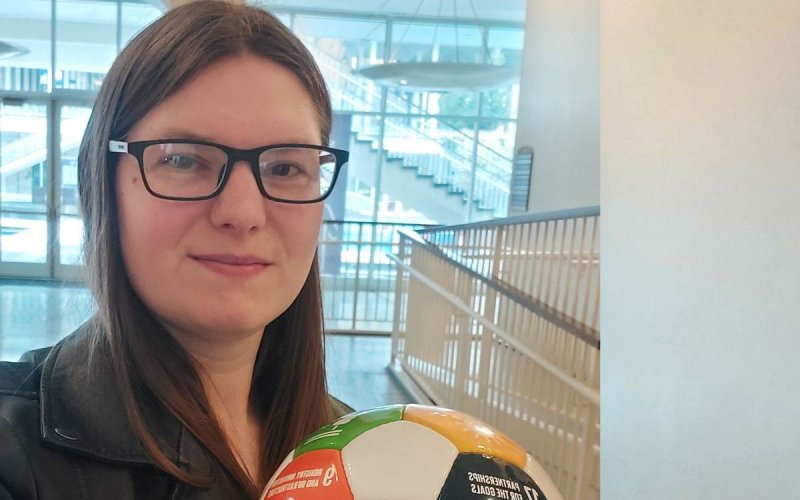On the Path to a Zero-Waste Lifestyle

ALBANY, N.Y. (April 22, 2021) — Senior Crystal Baker has always been passionate about the dangers of waste and what it does to our environment and to others.
“I hate waste, she said. “I see waste everywhere. I have always wanted to live a waste-free lifestyle, but I never knew how to do it.”
Baker grew up in Clifton Park and is an EHC major with a concentration in Emergency Preparedness and minor in Psychology.
Her interest in sustainability and the environment led her to research on how to successfully live a waste-free life, and in January she completely altered how she lived try to achieve a zero-waste lifestyle. “I wanted to stop contributing to the problem, and start being a part of the solution,” Baker said. So, how does she do it?
One of the main changes was to become more aware of her actions to change how she shops and lives. Her first step was to go to the grocery store without buying anything. She walked through the store and tried to make a list of things you could buy with no packaging or with packaging that was entirely recyclable
It was an eye-opener – almost everything in the store came in non-recyclable packaging. Even the few items on her list that she thought were recyclable were in fact not. This exercise changed her perspective drastically on how she used everyday items.
Baker shared with us the steps that she takes in order to maintain a zero-waste lifestyle:
- Be aware. Be aware of what you are using, how you are using it, and whether the products you are buying contribute to more or less waste.
- Start Small. Make small changes that have big impacts, such as switching from plastic garbage bags to compostable bags. Look at the items that you regularly buy and find out where you can buy them in more eco-friendly packaging, or where they are available loose or in bulk, and bring your own reusable containers.
- Shop Local. Shopping locally not only supports your community, but the products are usually made more sustainably and with fewer preservatives and chemicals, and less shipping – all of which contribute harm to the us and the environment. Shopping locally also means less packaging Farm markets and co-ops offer fresh produce and other products without any packaging.
- Reduce, Reuse, Recycle: If you cannot recycle or reuse the product, try not to buy it. Reuse jars, boxes, bags and anything else that can be re-used. Make sure you have a recycling bin and use it.
- Be willing to learn, change and accept. This includes willingness to change current and old habits. Learn about recycling and waste; learn about the environment, climate and its impact on humanity; and be accepting of the information you learn about. But always check your sources!
- Accept that it is a life process. This is a long-term, for-life process; it does not happen overnight. Accomplishing small goals every day and making small changes add up over time.
- Be creative. Baker makes cat scratchers out of cardboard boxes that she’s not reusing, and donates them to her local animal shelter.
Although she is accustomed to waste-free living, it also comes with many challenges. The biggest challenge is to see that knowing and understanding the damage that plastic and waste do to the environment, corporations and individuals continue to create waste and refuse to implement change.
“I could write a book about this section. But put plainly: It shouldn't be so hard to recycle or dispose of waste correctly,” said Baker. Another challenge that she mentioned is that our waste system in general is broken and while companies spends millions promoting the need for individuals to recycle they continue to create excess packaging.
Because Baker is so passionate about this topic, she does her best to advocate for others to live a waste-free lifestyle, including encouraging zero-waste practices both on campus and in the community. “I would like to see our school partner more with local co-ops, farmers and local businesses,” she said. “Additionally, I am in the process of creating a website to include all my research from the last 4 months into one place.”
The site will include information on how to recycle, how to begin a zero-waste lifestyle, and more than 300 products that you can buy or make yourself that are sustainable swaps for everyday products.
Story by Staff Intern Rachel Kalter




